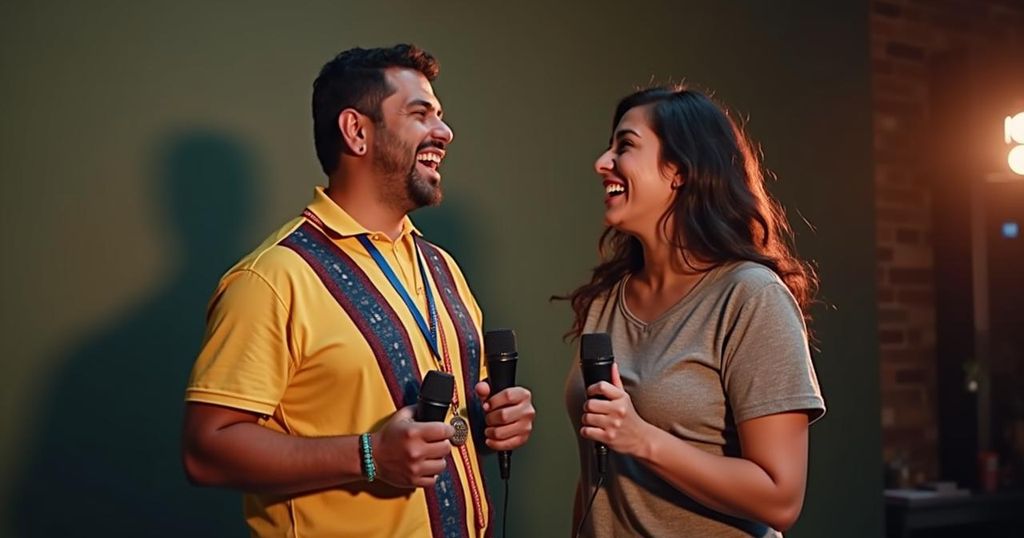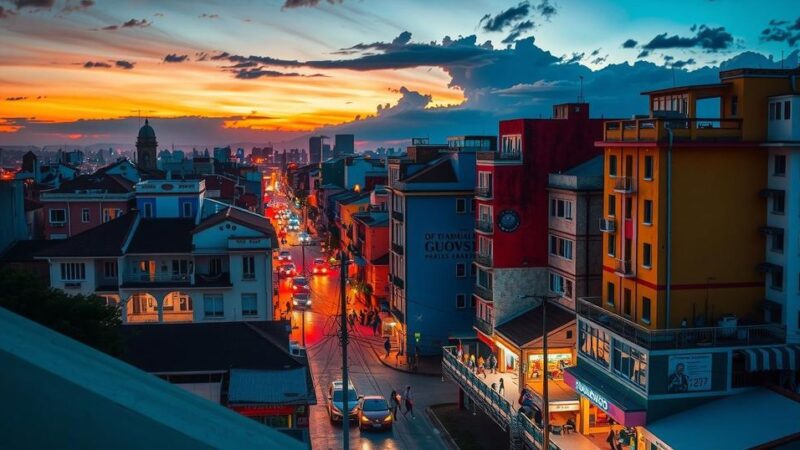Venezuelan comedians, particularly those in exile, are finding ways to use humor to address the challenges of political persecution, economic hardship, and cultural displacement. Notable figures include Estefanía León, who plays a significant role in the comedic revival through projects like ‘El Cuartico.’ Their sketches reflect on themes of migration and authoritarianism, connecting with audiences worldwide while also confronting the repression of humor within Venezuela itself.
The plight of Venezuelan comedians is illustrated through the journey of Estefanía León, who fled her homeland amidst political turmoil and economic despair. Amidst the severe crisis that peaked in 2017, León found solace in comedy, even as her circumstances became increasingly dire, with her father’s illness and escalating state repression prompting her escape to Mexico City in 2018. She has since emerged as a key figure in a burgeoning comedy movement comprised predominantly of Venezuelan expatriates, who utilize humor to process their experiences and critique authoritarianism. The comedians have garnered a significant following, with León being one of the producers for ‘El Cuartico,’ a digital sketch series that resonates with both Venezuelans and broader Spanish-speaking audiences. Their content has shifted from universal themes to poignant reflections on migration, dictatorship, and cultural identity. Notable sketches highlight the absurdities of immigration processes and mock the persistence of authoritarian rulers such as Nicolás Maduro. As escalating political repression in Venezuela continues to drive migration, these comedians work predominantly outside their homeland, bringing Venezuelan cultural narratives to a global stage. The diaspora has helped many reconnect with their heritage, as they address issues relevant not only to Venezuelans but to the larger Latin American audience. These comedic expressions are vital for fostering a sense of identity and solidarity within the Venezuelan community abroad. However, within Venezuela, comedic expression remains fraught with danger, evidenced by Alejandra Otero’s experiences at Pizpa, a Caracas comedy club. Despite the risks, Otero continues to perform, underscoring the crucial role that humor plays in providing respite and a voice against oppression. As such, while the circumstances for comedians in Venezuela grow more perilous, the comedic response—from exile and within the country—persists as a powerful form of resistance against authoritarian rule.
The article explores how Venezuelan comedians, particularly those in exile, navigate the challenges brought on by political persecution and economic instability in their homeland. As a response to the oppressive regime of Nicolás Maduro and the subsequent migration crisis, these comedians utilize humor as a means to cope with their experiences and connect with broader audiences. The narrative emphasizes the resilience of cultural expressions in times of distress, highlighting the vital role of comedy in addressing sociopolitical issues and preserving cultural identity.
The Venezuelan comedy scene, both abroad and at home, illustrates the resilience of its artists amidst ongoing political challenges. Comedians like Estefanía León exemplify how humor can be a powerful tool for critique and community-building, particularly in the context of authoritarian regimes. As they adapt their performances to resonate with both local and international audiences, these comedians uphold a rich cultural narrative while also highlighting the pressing issues faced by their compatriots.
Original Source: www.nytimes.com






